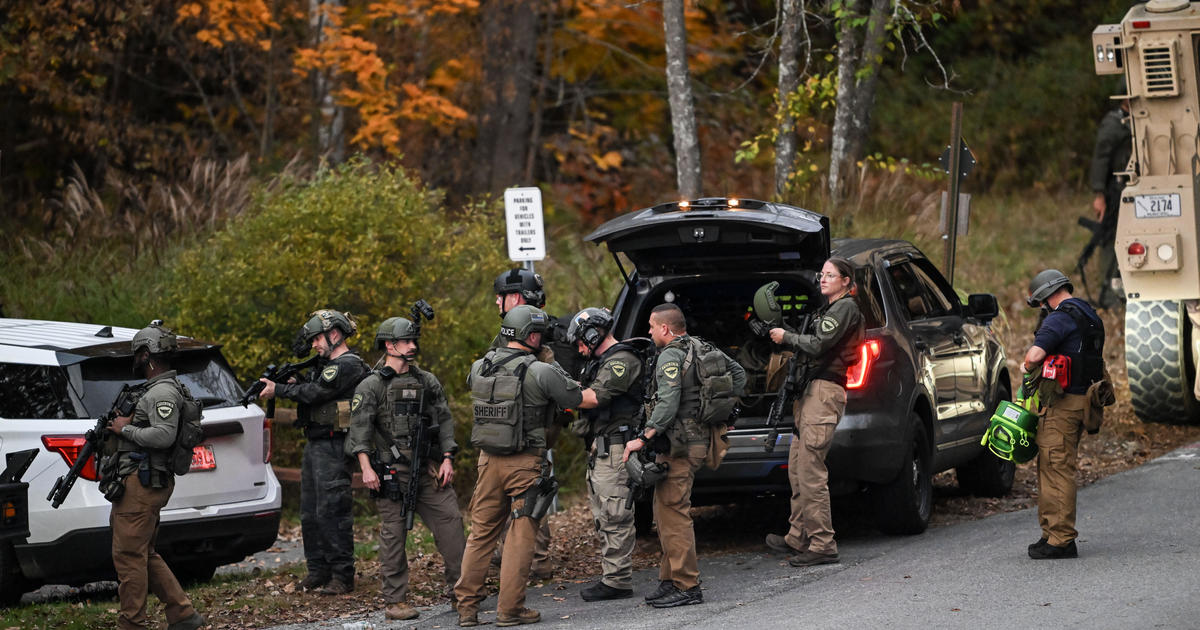
Gunman in Maine's deadliest mass shooting, Robert Card, had significant evidence of brain injuries, analysis shows
CBSN
Augusta, Maine — Robert Card, the Army reservist who shot and killed 18 people in Maine last year, had significant evidence of traumatic brain injuries, according to a brain tissue analysis by researchers from Boston University that was released Wednesday.
There was degeneration in the nerve fibers that enable communication between different areas of the brain, inflammation and small blood vessel injury, according to Dr. Ann McKee of Boston University's Chronic Traumatic Encephalopathy (CTE) Center. The analysis was released by Card's family.
Card had been an instructor at an Army hand grenade training range, where it is believed he was exposed to thousands of low-level blasts.

Santa Fe, New Mexico — A representative for the estate of actor Gene Hackman is seeking to block the public release of autopsy and investigative reports, especially photographs and police body-camera video related to the recent deaths of Hackman and wife Betsy Arakawa after their partially mummified bodies were discovered at their New Mexico home in February.

In the past year, over 135 million passengers traveled to the U.S. from other countries. To infectious disease experts, that represents 135 million chances for an outbreak to begin. To identify and stop the next potential pandemic, government disease detectives have been discreetly searching for viral pathogens in wastewater from airplanes. Experts are worried that these efforts may not be enough.











